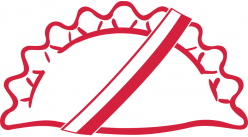Meaning:
Lit. “where dogs bark with their asses” which is a very colourful way to describe a deep backcountry, a remote anus mundi whereto civilized folk venture rarely and locals cultivate some strange and even dangerous habits. The expression is quite often used by city dwellers considering themselves forces of enlightenment pointing at country folk. A real marvel of Polish vulgar metaphors.
